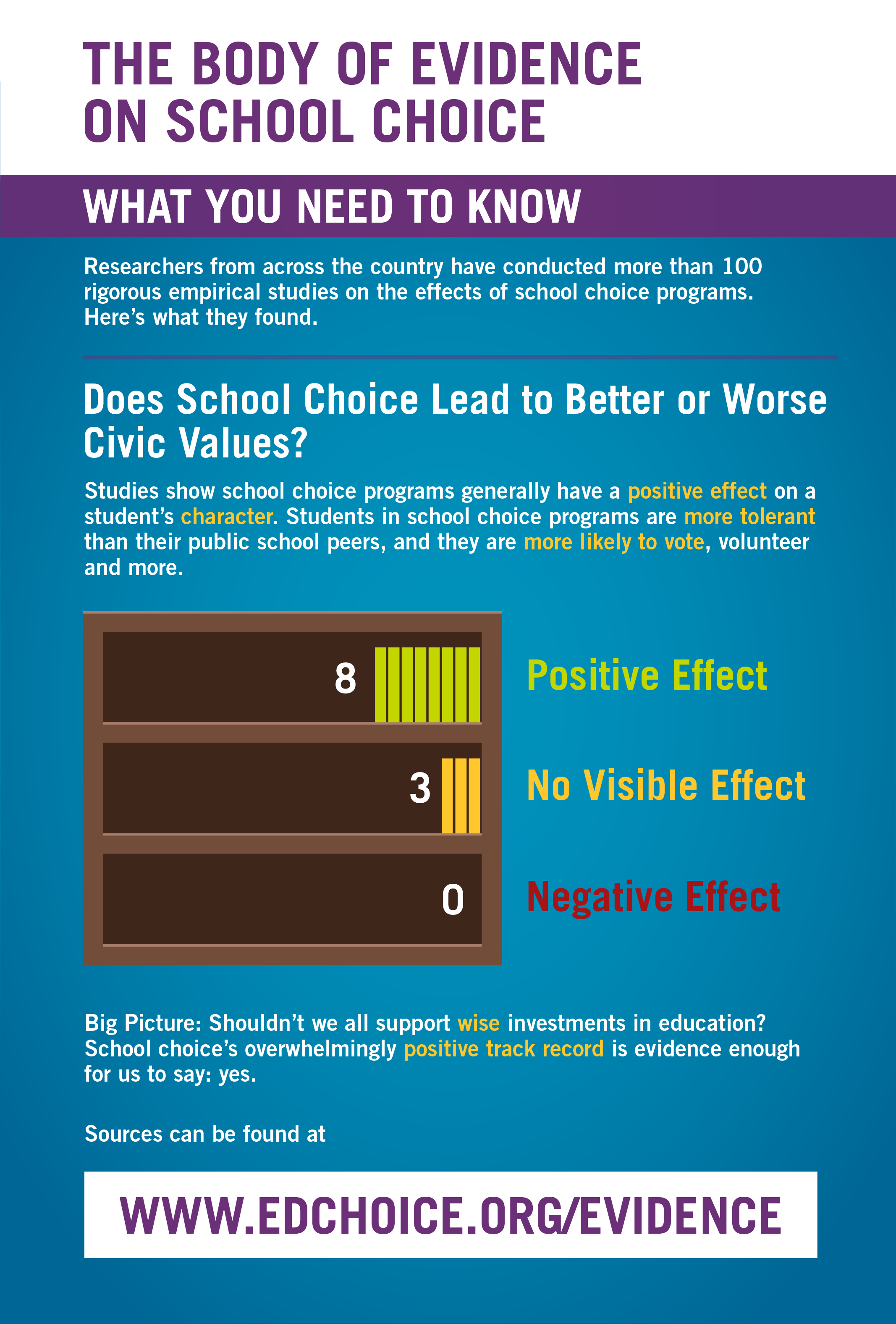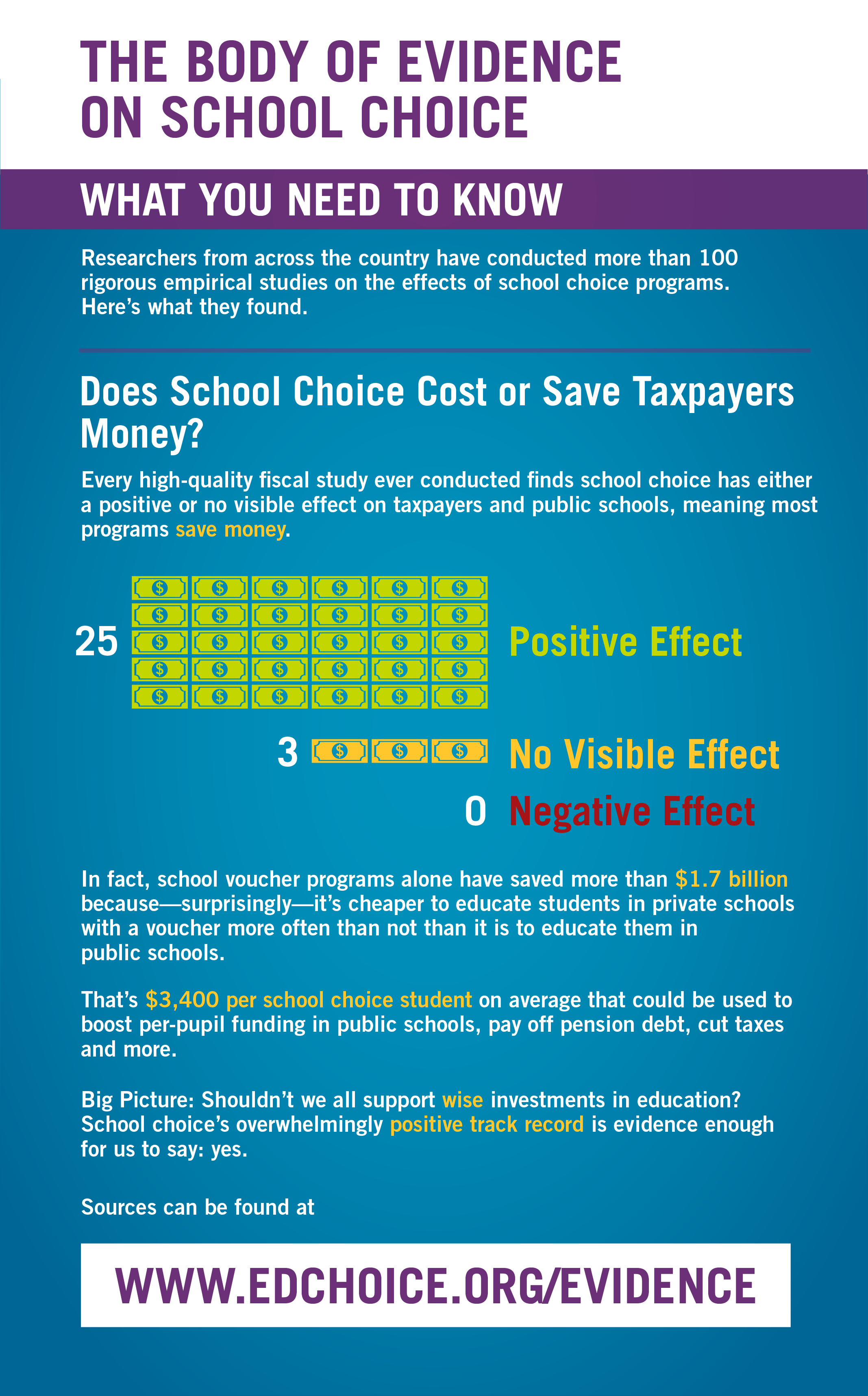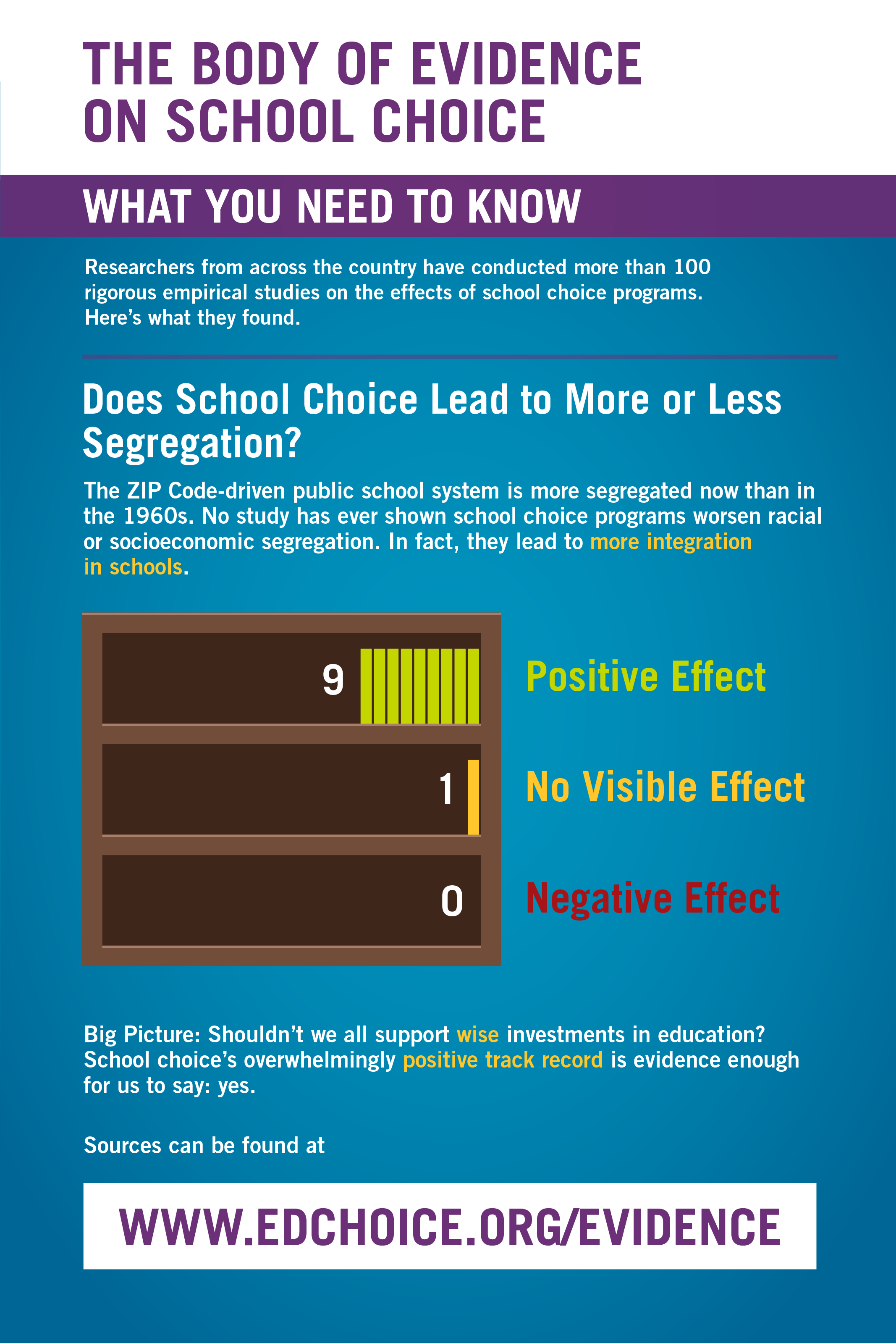The Body of Evidence on School Choice: What You Need to Know
Researchers from across the country have conducted more than 100 rigorous empirical studies on the effects of school choice programs. Here’s what they found.
Does School Choice Help or Hurt Students?
The vast majority of random assignment studies—the gold-standard method in social science—find school choice programs help improve students’ academic performance, especially over time.

The studies that have found negative effects typically reflect only the first year or two of participating students’ test scores in their new schools.
Other credible non-random assignment studies also back up this trend.
In summary, we know:
- These trends are normal when students switch schools, no matter the sector.
- School choice students tend to be among the most academically behind students in their public schools before using choice programs.
- Their private schools of choice tend to turn their performance around in three to four years on average.
- Test scores aren’t the only way to evaluate the success or failure of a school choice program or school.
At the end of the day, researchers agree that more longitudinal studies are required to make any sweeping claims about school choice policies’ long-term effects on students.
Most studies also find that school choice drives competition among schools, and public schools respond well to that pressure. Students who remain in public schools improve, too!
Lastly, test scores aren’t the only measure of a successful education—in public schools or private schools. Children excel in different areas and learn at different paces.
School choice is about opening more opportunities for kids to find the right fit for their learning needs.
Does School Choice Lead to More or Less Segregation?
The ZIP Code-driven public school system is more segregated now than in the 1960s. No study has ever shown school choice programs worsen racial or socioeconomic segregation. In fact, they lead to more integration in schools.
Does School Choice Lead to Better or Worse Civic Values?
Studies show school choice programs generally have a positive effect on a student’s character. Student in school choice programs are more tolerant than their public school peers, and they are more likely to vote, volunteer and more.

Does School Choice Cost or Save Taxpayers Money?
Every high-quality fiscal study ever conducted finds school choice has either a positive or no visible effect on taxpayers and public schools, meaning most programs save money.

In fact, school voucher programs alone have saved more than $1.7 billion because—surprisingly—it’s cheaper to educate students in private schools with a voucher more often than not than it is to educate them in public schools.
That’s $3,400 per school choice student on average that could be used to boost per-pupil funding in public schools, pay off pension debt, cut taxes and more.
Big Picture: Shouldn’t we all support wise investments in education? School choice’s overwhelmingly positive track record is evidence enough for us to say: yes.
NOTE: All sources may be found at www.edchoice.org/evidence.





